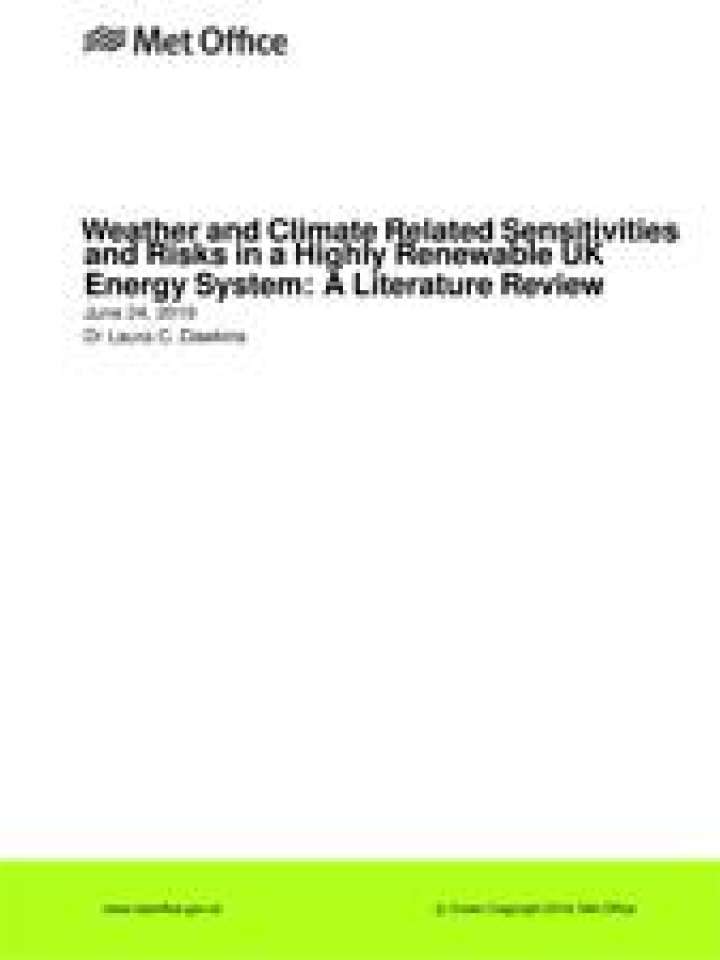Weather and climate change risks in a highly renewable UK energy system – literature review by Met office
This literature review provides an in-depth exploration of studies relevant for understanding weather and climate-related sensitivities and risks associated with a highly renewable UK energy system. The reviewed literature suggests that extreme stress on the energy system, resulting from adverse weather conditions, can be characterised in five ways: winter-time peak residual demand (demand net of renewable supply); winter-time wind power ramping (large fluctuations in power generation in a short time window); summer-time surplus solar PV power generation; summer-time wind drought; and solar PV ramping. These stress conditions result from extreme magnitudes and fluctuations in energy demand, shown to vary with temperature, and renewable electricity supply, shown to vary with wind speed and solar irradiance (power of the sun). The reviewed studies highlight the energy system resilience opportunities associated with utilising insights related to the spatial and temporal variability and dependence in relevant meteorological conditions.
Moreover, the literature focuses predominantly on winter-time peak demand conditions and a limited number of studies explore extreme stress using a whole system energy model. Studies quantifying the predictability of meteorological conditions associated with the energy system are also predominantly focused on wind power forecasting and very few consider extreme stress conditions. Furthermore, the reviewed literature emphasises the increasing importance of detailed models for weather dependent wind and solar PV power generation, for understanding the resilience of future highly renewable energy systems. The identified gaps within the reviewed literature indicate that further research should be undertaken to test the resilience of the future highly renewable energy systems considered in the assessment to extreme adverse weather conditions, while accounting for climate variability and change.
Explore further
